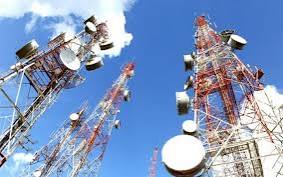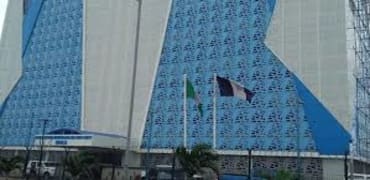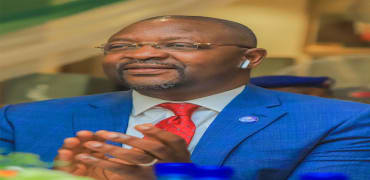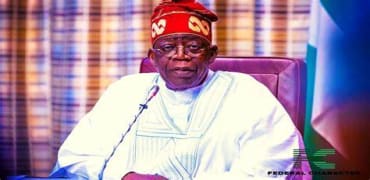50% Call Tariff Hike: Nigerians to Spend a Jaw-Dropping N6.74 Trillion on Phone Calls by 2025
50% Call Tariff Hike: Nigerians to Spend a Jaw-Dropping N6.74 Trillion on Phone Calls by 2025
By Achimi Muktar
The Nigerian Communications Commission (NCC) has approved a 50% increase in call tariffs, raising the cost of phone calls to N16.5 per minute. This development could see Nigerians collectively spending a staggering N6.74 trillion on calls by 2025, based on current call volumes.
The Numbers Behind the Tariff Hike
According to the NCC’s 2023 Subscriber/Network Performance Report, Nigerians spent a total of 408.5 billion minutes on local calls in 2023, with telecom giant MTN leading the market. At the new rate, MTN alone is projected to rake in over N4 trillion from outgoing and incoming calls combined, accounting for more than 60% of the market's revenue.
MTN: N4 trillion
Airtel: N1.78 trillion
Glo: N536.2 billion
9mobile (EMTS): N105.6 billion
Smaller players (e.g., Smile, Ntel): N18.8 billion
Despite the rise of data-driven platforms like WhatsApp and Telegram, voice calls remain a primary revenue source for telecom operators. Outgoing calls are expected to contribute N3.28 trillion, while incoming calls will bring in N3.23 trillion.
SMS Charges Skyrocket
Alongside call tariffs, SMS costs have also been adjusted, increasing from N4 to N6 per message. With Nigerians sending 22.97 billion SMS in 2023, telecom operators are projected to earn N137.84 billion from SMS traffic by 2025. MTN is set to dominate here as well, with an estimated N100.72 billion in revenue.
Consumer Backlash and Legal Threats
The tariff hike has sparked outrage among consumer advocacy groups and subscribers, who argue that the increase will exacerbate the financial strain on Nigerians already grappling with economic challenges.
Adeolu Ogunbanjo, President of the National Association of Telecoms Subscribers, has rejected the hike, warning of potential legal action if the adjustment is implemented without addressing consumer concerns.
“We might accept a modest increase of 5-10%, but a 50% hike is unacceptable,” Ogunbanjo stated, suggesting that operators explore alternative funding methods, such as Initial Public Offerings (IPOs), to raise capital without overburdening consumers.
Sina Bilesanmi, President of the Association of Telephone, Cable TV, and Internet Subscribers, has also expressed conditional support for the hike. “If we don’t see significant improvements in service quality within two weeks of rollout, we will take legal action,” Bilesanmi warned.
Government and NCC’s Stance
The NCC defended the adjustment as a necessary measure to address rising operational costs in the telecom sector, which has faced static tariff rates since 2013 despite inflation and economic pressures.
“The adjustment, capped at 50%, is far below the 100% increase requested by some operators,” the NCC stated, adding that the new rates would adhere to the NCC’s 2013 Cost Study and the 2024 Guidance on Tariff Simplification.
Minister of Communications, Innovation, and Digital Economy, Bosun Tijani, acknowledged the need for a moderate tariff increase to ensure the sector’s sustainability. However, Tijani assured Nigerians that the hike would be capped between 30% and 60%.
What Lies Ahead?
The 50% tariff hike underscores the delicate balance between sustaining the telecom sector and protecting consumers. While operators promise improved services and infrastructure, the pressure is on to deliver tangible results or face legal battles and consumer dissatisfaction.
For now, Nigerians must brace for higher costs, with a watchful eye on whether these increases tran50% Call Tariff Hike: Nigerians to Spend a Jaw-Dropping N6.74 Trillion on Phone Calls by 2025
By Achimi Muktar
The Nigerian Communications Commission (NCC) has approved a 50% increase in call tariffs, raising the cost of phone calls to N16.5 per minute. This development could see Nigerians collectively spending a staggering N6.74 trillion on calls by 2025, based on current call volumes.
The Numbers Behind the Tariff Hike
According to the NCC’s 2023 Subscriber/Network Performance Report, Nigerians spent a total of 408.5 billion minutes on local calls in 2023, with telecom giant MTN leading the market. At the new rate, MTN alone is projected to rake in over N4 trillion from outgoing and incoming calls combined, accounting for more than 60% of the market's revenue.
MTN: N4 trillion
Airtel: N1.78 trillion
Glo: N536.2 billion
9mobile (EMTS): N105.6 billion
Smaller players (e.g., Smile, Ntel): N18.8 billion
Despite the rise of data-driven platforms like WhatsApp and Telegram, voice calls remain a primary revenue source for telecom operators. Outgoing calls are expected to contribute N3.28 trillion, while incoming calls will bring in N3.23 trillion.
SMS Charges Skyrocket
Alongside call tariffs, SMS costs have also been adjusted, increasing from N4 to N6 per message. With Nigerians sending 22.97 billion SMS in 2023, telecom operators are projected to earn N137.84 billion from SMS traffic by 2025. MTN is set to dominate here as well, with an estimated N100.72 billion in revenue.
Consumer Backlash and Legal Threats
The tariff hike has sparked outrage among consumer advocacy groups and subscribers, who argue that the increase will exacerbate the financial strain on Nigerians already grappling with economic challenges.
Adeolu Ogunbanjo, President of the National Association of Telecoms Subscribers, has rejected the hike, warning of potential legal action if the adjustment is implemented without addressing consumer concerns.
“We might accept a modest increase of 5-10%, but a 50% hike is unacceptable,” Ogunbanjo stated, suggesting that operators explore alternative funding methods, such as Initial Public Offerings (IPOs), to raise capital without overburdening consumers.
Sina Bilesanmi, President of the Association of Telephone, Cable TV, and Internet Subscribers, has also expressed conditional support for the hike. “If we don’t see significant improvements in service quality within two weeks of rollout, we will take legal action,” Bilesanmi warned.
Government and NCC’s Stance
The NCC defended the adjustment as a necessary measure to address rising operational costs in the telecom sector, which has faced static tariff rates since 2013 despite inflation and economic pressures.
“The adjustment, capped at 50%, is far below the 100% increase requested by some operators,” the NCC stated, adding that the new rates would adhere to the NCC’s 2013 Cost Study and the 2024 Guidance on Tariff Simplification.
Minister of Communications, Innovation, and Digital Economy, Bosun Tijani, acknowledged the need for a moderate tariff increase to ensure the sector’s sustainability. However, Tijani assured Nigerians that the hike would be capped between 30% and 60%.
What Lies Ahead?
The 50% tariff hike underscores the delicate balance between sustaining the telecom sector and protecting consumers. While operators promise improved services and infrastructure, the pressure is on to deliver tangible results or face legal battles and consumer dissatisfaction.
For now, Nigerians must brace for higher costs, with a watchful eye on whether these increases translate into better call quality and connectivity.slate into better call quality and connectivity.


















